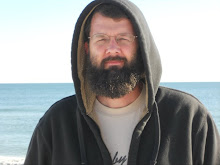"Christianity overcame pagan Rome by nonviolence. But when Christianity became the religion of the Empire, then the stoic and political virtues of the Empire began to supplant the original theological virtues of the first Christians. The heroism of the soldier supplanted the heroism of the martyr- though there was still a consecrated minority, the monks, who kept the ideal of charity and martyrdom in first place.
The ideal of self-sacrifice was never altogether set aside- on the contrary! But it was transferred to a new sphere. Now the supreme sacrifice was to die fighting under the Christian emperor. The supreme self-immolation was to fall in battle under the standard of the Cross. In the twelfth century even monks took up the sword, and consummated their sacrifice of obedience by dying in battle against the infidels, against heretics...
Unfortunately, they also fought other monks, and this was not necessarily regarded as virtue. But it does show what comes of living by the sword!
Christian chivalry was the fruit of a union between Christian faith and Roman, Frankish, or Germanic valor. In other words, Christians did here what they also did elsewhere: They adopted certain non-Christian values and "baptised" them, consecrating them to God. Christianity might just as well have turned to the East and "baptized" the nonmilitant, contemplative, detached, and hieratic institutions of the Orient. But by the time Christianity was ready to meet Asia and the New World, the Cross and the sword were so identified with one another that the sword itself was a cross. It was the only kind of cross some conquistadors understood.
There was no further thought of Christianizing the ideals and institutions of these ancient civilizations: only of destroying them, and bringing their people into subjection to the militant Christianity of Europe. Hence the strange paradox that certain spiritual and largely nonviolent ideologies which were in fact quite close to the Gospel were attacked and coerced in the name of Christ by the Christian soldier who was often no longer a Christian except in name: for he was violent, greedy, self-complacent, and supremely contemptuous of anything that was not a perfect reflection of himself. "
--From Conjectures of a Guilty Bystander by Thomas Merton
I think Thomas Merton is this passage does a superb job off pointing out that somewhere along the line things got a bit turned about. Our Christian ancestors, outnumbered as they were, didn't take up arms against the Romans, yet survived. No doubt countless numbers did not survive. We find it unthinkable now that we would not take up arms against our adversaries. Somewhere along to the line, Jesus's example become a sort of ideal, something you never quite tried to fully obtain. Because He said to turn the other cheek, to give not only your shirt but your cloak, not only walk one mile but two, we only kill people when we are fully justified. Murderers are those who kill without societal justification. Most Christians don't take seriously Jesus's mandate of nonviolence. We immediately take things to their logical extremes (and maybe we should). Because I would kill in order to defend by family, then there is a situation in which I would kill. There is a qualifier. If you meet my qualifier, do not pass my filter test, then you die. So even though I may live to be a very old man and kill no one, I walk through life a murderer, harboring my murder, my fear, in my heart, like an egg waiting to be hatched. And when my qualifiers are met then I will kill, and everyone would find it justified, and perhaps (in the right situation) I will be given a medal from my government. If I were to say that I had no qualifiers, no conditions that would allow me to kill, then the world would declare me insane, or something worse, someone who didn't have the decency to defend his family. Perhaps because I am responsible for not only myself but also my loved ones, I don't have the luxury of trying to be Christlike. But this idea of nonviolence is not some sort of soft pacifism. This is the beginning of peace. Peace in my heart-not the peace of man (which means we have peace because I haven't killed you yet which means you must have passed my filter test), but the Peace of God- Peace that saturates and leaves no room for violence, for murder, for anything but Love. Not the kind of Love you find on a bumper sticker, but Love that transcends. Instead we talk about about just wars and collateral damage.
So pray for Peace. Pray for Israel, pray for Gaza. Pray that Love reigns and violence ends. Pray for Christians, Muslims, and Jews. Pray.
Lord make me an instrument of your Peace. Amen.
Moving on...
7 years ago

No comments:
Post a Comment